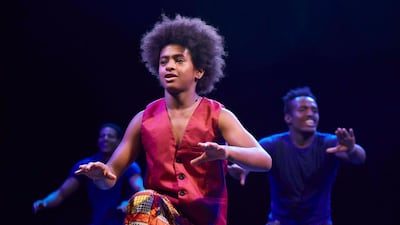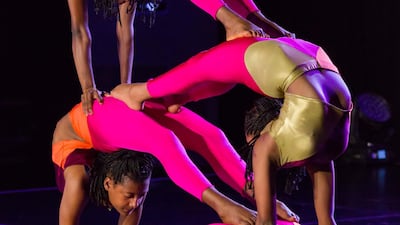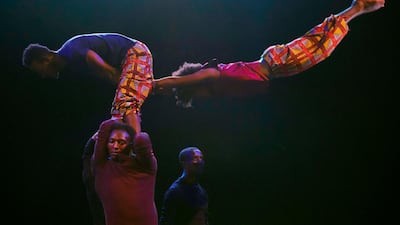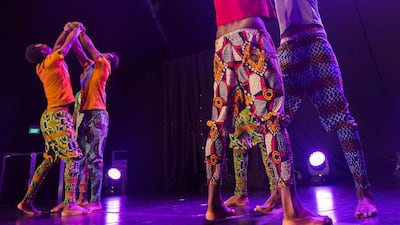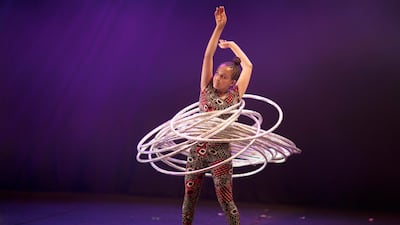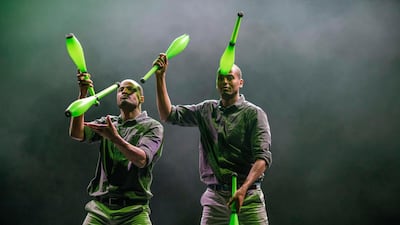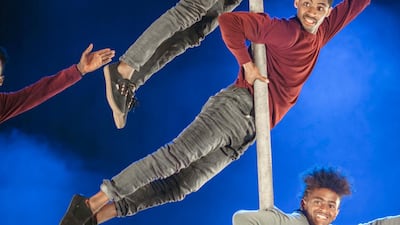What do you do when life gives you oranges? Well, you join a circus, of course.
It is that kind of endearing logic that gave brothers Bibi and Bichu Tesfamariam a chance to not only change their circumstances, but also the lives of scores of young Ethiopians through their travelling troupe and performance school, Circus Abyssinia.
The company, from Ethiopia, is bringing its world tour to the capital for three shows from today until Saturday. The circus is the curtain-raiser for the new performance season at NYU Abu Dhabi's Arts Centre.
With a display of fluid choreography, dazzling acrobatics and pulsating Ethiopian music performed live by a band, the company's Ethiopian Dreams production will tell a story of its sibling founders and their quest to fulfil their dreams.
From the marketplace to touring the world
Which brings us back to the oranges.
The brothers tell The National how their love for the circus was sparked on a school day in the Ethiopian capital of Addis Ababa, more than two decades ago. Bichu, 36, is one year younger than his brother Bibi. He recalls a rather sullen classroom atmosphere: so, to raise everyone's spirits, the teacher – who was French – performed a trick he had learnt in his former profession as a street magician in Paris. He opened his bag, pulled out three oranges, and began to conduct the class while juggling.
The students were amused at best, while the Tesfamariam brothers were enraptured.
"We asked him how he did it and he showed us a few tricks," Bichu says. "The next day we came back to school with oranges from home and we practised [juggling] there."
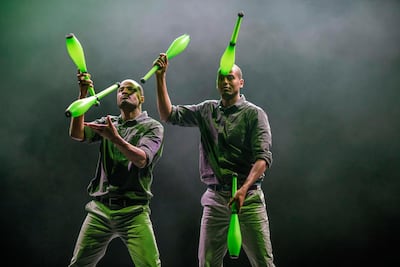
While some would have viewed the siblings' latest hobby as just that, for Bichu and Bibi, it opened a new form of expression. The ability to take something as simple as oranges and use them to create wonder for people was intoxicating to them.
Sensing their enthusiasm, the teacher gave the brothers a Cirque du Soleil video to watch.
"The video never left the player," Bibi says. "We watched it every day for I don't know how many years and it was pretty much worn out." Inspired by the Canadian company, the brothers started staging their own shows around the city. After school and on holidays, they would pick a spot in different markets and juggle amid the haggling crowds.
It was the best kind of education, Bichu says. "We were out there in the public and trying to get people's attention with what we were doing.
"It was difficult, of course, but it taught us about performance and how to get people to notice you," he says. In one crowd was a team from the local company, Circus Ethiopia. They offered the boys the opportunity to hone their craft in their circus school. The duo later accompanied the group on its international tours.
While it wouldn’t be accurate to state the brothers ran away to join the circus, Bichu says their parents weren’t exactly thrilled by their decision.
“We came from a middle class family. Both my parents were educated and they couldn’t really understand what we were doing. I mean, until today, they still have that feeling,” he says, with a hearty laugh.
“They didn’t take it seriously at first. They were like ‘okay, go out there and show your talent’ and then come back to study and maybe be a doctor or an accountant.”
How the brothers crafted their own story
The boys have yet to honour that agreement. As young men in their twenties, the duo joined the Guildford Circus in the UK in the early 2000s.
With the company in its infancy at the time, Bichu says the brothers had a front-row seat to observe how such an organisation is run, from the artistic work and management, to the financial aspects.
It was one of Guildford's shows that first got them thinking about creating their own project. That production, Moon Songs, had an overarching theme of childhood imagination. In one of the sub-plots of the show, they took elements of the brothers' past and wove them into the story.
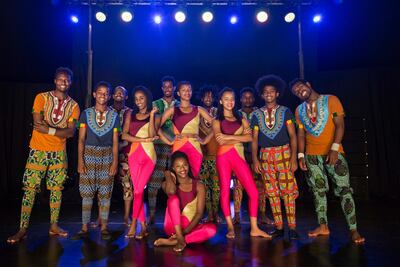
Spurred on by the positive feedback from Moon Songs, the brothers decided to create an entire production of their own. The only thing missing, however, was a cast.
Fortunately, at the time, Bibi and Bichu were financially sponsoring circus schools back in Addis Ababa as a way to give back to their community. It was at one of those schools, during one of their trips home, that they came across a group of young talents called the Abyssinia Troupe.
Impressed by their skill, the brothers felt they were the perfect vehicle to create their semi-autobiographical show, Ethiopian Dreams. Bichu became the troupe's creative director, Bibi became their manager, and Circus Abyssinia was born.

More talent joined the ranks over the years as the brothers worked to build a company that is technically refined and rooted in Ethiopian culture.
Giving young Ethiopians an opportunity to express themselves
Linking culture with performance was a challenge that took some time to overcome, says Bibi. While the near 30-member group (from ages 15 to 25) are trained to the exacting level of the standards of the European circus tradition, it took a while for the group to get in the rhythm with its heritage.
Ethiopian Dreams, and Circus Abyssinia productions, combine traditional Ethiopian music, with its peculiar and often urgent beats and choreographing it to acrobatic set pieces.
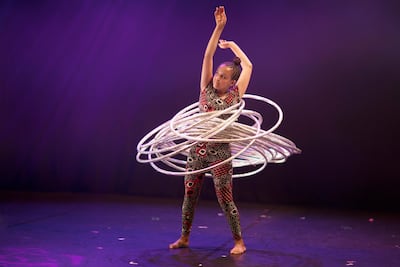
"It's totally different to the circus music that you normally hear," says Bibi. "And for the show in Abu Dhabi, we are coming with an actual live band. So we had to work hard with the musicians, to really listen to the music and its rhythms. But it is worth it. When you see it, it will look and sound amazing because it is something different."
It is that quality that has made Circus Abyssinia such a drawcard. From the UK to Australia (there will be a US tour later this year), the group has confounded expectations of not only what to expect from a circus performance, but also of Ethiopia.
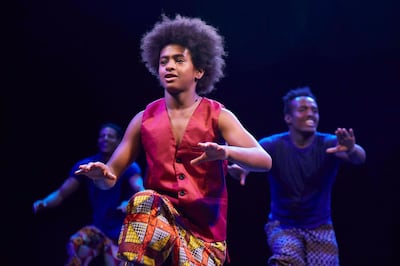
While content to be considered cultural ambassadors, the brothers find true satisfaction in giving a new generation of Ethiopians an opportunity to express themselves through their circus schools.
This time around, with more than a bunch of oranges. "That is important for us," says Bibi. "Right now, there are a lot of positive developments happening in Ethiopia and things are changing. But there are still some things that need to be done. There needs to be more activities for young people and places for them to go. This will happen I think, it just needs time."
Ethiopian Dreams by Circus Abyssinia, NYU Abu Dhabi Arts Centre, Saadiyat Island. Today and tomorrow, 8pm; and Saturday, 2pm. Tickets are Dh150 on nyuad-artscenter.org

